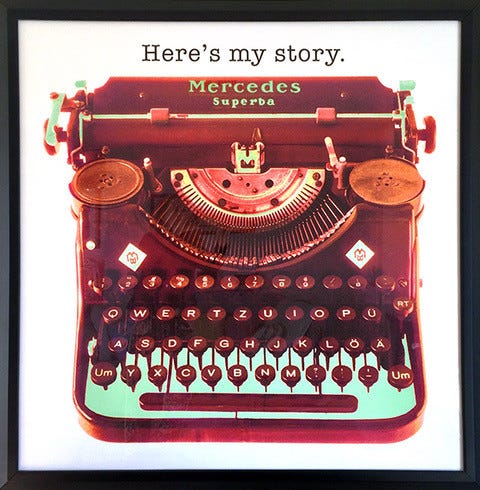Partly AI-generated post: Write Your Book In 12 Actionable Steps
And fiction & non-fiction book proposals & writing prompts
These checklists were created and prioritized with the assistance of AI. Of course, different people may go about the process differently, either planning generally or in great detail, according to how you work best.
Write a book in 12 basic steps
Choose a genre and theme for the book
Brainstorm ideas and concepts for the plot
Identify the target audience
Create and develop character profiles for main and supporting characters
Create a table of contents with chapter titles
Write a brief synopsis of the story
Plan key scenes for each chapter
Break the story down into major plot points or events
Set writing goals and a schedule to draft the book
Overlay the story with unique surprises, excitement and inspiration
Revise for clarity and interest
Get an editor or two to look it over it
FICTION book proposal
Cover letter, synopsis & the first 3 chapters of book (Write the proposal before getting too far into the book manuscript.)
Define the book's purpose and target audience
Research successful fiction book proposals
Give it a compelling title (and subtitle)
Outline the chapters, give chapter titles
What is the main concept of book and why is it important? (elevator pitch)
Write a fiction synopsis
Create an author bio highlighting relevant experience
Revise and edit the proposal for clarity and interest
Research literary agents or publishers and their specific submission guidelines
Submit proposal according to each agent's or publisher's guidelines
Include a marketing plan (promotion ideas and platforms)
Prepare a cover letter to accompany the proposal
Choose the appropriate format (e.g., print, ebook) and length of the manuscript
Format the proposal according to industry standards
Submit proposal according to each agent's or publisher's guidelines
NON-FICTION book proposal
Cover letter, author expertise is more important, market analysis and research on similar books is more important, overview/chapter breakdown, and sample chapters (strongest chapters)
Define the book's purpose and target audience
Research successful non-fiction book proposals
Give it a compelling title (and subtitle)
Outline the topics of each chapter, give chapter titles
Select strongest/most interesting chapters to be your sample chapters
What is the main concept of book and why is it important? (elevator pitch)
Write a non-fiction synopsis
Create an author bio highlighting relevant expertise and experience
Revise and edit the proposal for clarity and interest
Research literary agents or publishers and their specific submission guidelines
Research similar books and how they were marketed
Include a marketing plan (promotion ideas and platforms)
Provide details on potential endorsements or testimonials
Prepare a cover letter to accompany the proposal
Choose the appropriate format (e.g., print, ebook) and length of the manuscript
Format the proposal according to industry standards
Submit proposal according to each agent's or publisher's guidelines
Generating the lists using AI was surprisingly time consuming; the fiction and non-fiction lists were totally different, so I made them uniform to better highlight their differences. I also added items based on my experience. AI can help you break down each item into further steps if needed.
Writing Prompts
Write about a light bulb moment, the moment everything about a situation made sense.
Write about something that brings a smile to your face.
Write about what happens when two different animals cross paths?
Write about a drama queen, a character who attracts drama every day.
This playlist is nice writing music:
How to Write a Non-Fiction Synopsis
Writing a good synopsis is very important. Like a blueprint or microcosm, its purpose is to help agents/publishers understand everything they need to know about who you are and what your book is about in a nutshell. (The synopsis is not meant to be for the general public.) Some agents/publishers ask for a synopsis and nothing more. Think of the it as…
The Art of the Pitch
The point of the pitch letter is to demonstrate that you’re a good fit, a good bet for the agent/publication, that you can shoulder the responsibility of coming through for them with a reliable product that will be in demand. Think of it as a tasty appetizer to whet the appetite of all who read it.
Tips for Seat-of-Their-Pants Writers ("Pantsers")
Discovering the story as you go can be very exciting. Many artists feel spontaneity is an important part of the creative process. Some may even feel it allows characters the space to speak for themselves. The idea is that works of art already exist in the ether, and our job is to simply make them come to life. Many composers of music in particular fee…








